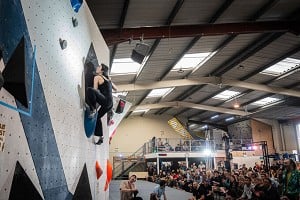
This topic has been archived, and won't accept reply postings.
Ok, yesterday we connected our first solar panel, Invertor straight to battery, TV NOW BUZZING loud at the back and interference on the screen.
Reasons please on a postcard :0)
Also should the Invertor be straight to the battery or through there controller, stupid instruction manual made for professors to read only!
Ta muchly Sam
Reasons please on a postcard :0)
Also should the Invertor be straight to the battery or through there controller, stupid instruction manual made for professors to read only!
Ta muchly Sam
In reply to Sam Mayfield: Did it work without the solar panel? Have you got a solar regulator, is it a modified or pure sign wave inverter?
In reply to bignige:
Yes worked fine from a genni. Yes it's going through the controller. Next question no idea?.?
Will go check
Yes worked fine from a genni. Yes it's going through the controller. Next question no idea?.?
Will go check
In reply to Sam Mayfield: That may be the problem, a modified sign wave inverter uses a squared off wave form, a pure sign inverter has the same wave pattern as your normal house hold supply. Most tv's work with both, does the tv have a separate power supply or is it built in? Just in case disconnect the solar panel and try it, 99% sure its not that
In reply to bignige:
Power supply built in on tv!
Not been home yet today so can't try anything.
Anyone else any ideas?
Ta
Power supply built in on tv!
Not been home yet today so can't try anything.
Anyone else any ideas?
Ta
In reply to Sam Mayfield:
I'm no solar power expert.
In fairly simple terms your inverter chops up the DC battery output into a nice smooth AC waveform with a single dominant frequency like you would get from the grid. The problem is is doesn't actually do that, it chops it up into discrete steps approximating the grid output but the step changes add in higher frequency components that cause misbehaviour. Some are much better than others.
No idea, no idea what their controller does.
jk
I'm no solar power expert.
> Ok, yesterday we connected our first solar panel, Invertor straight to battery, TV NOW BUZZING loud at the back and interference on the screen.
> Reasons please on a postcard :0)
> Reasons please on a postcard :0)
In fairly simple terms your inverter chops up the DC battery output into a nice smooth AC waveform with a single dominant frequency like you would get from the grid. The problem is is doesn't actually do that, it chops it up into discrete steps approximating the grid output but the step changes add in higher frequency components that cause misbehaviour. Some are much better than others.
> Also should the Invertor be straight to the battery or through there controller, stupid instruction manual made for professors to read only!
No idea, no idea what their controller does.
jk
In reply to jkarran:
Hmm yep just been reading that on a boat forum. Seems the pure wave Invertors though are a lot more expensive and use more power!
Stupid telly :0(
Sam orange
Hmm yep just been reading that on a boat forum. Seems the pure wave Invertors though are a lot more expensive and use more power!
Stupid telly :0(
Sam orange
In reply to Sam Mayfield: Check it's earthed (grounded) the invertor that is. I might just be electrical noise which "might" go if the invertor is grounded. Invertor produce a lot of electrical noise and with lots of different frequencies in it, so they can interfere a lot.
Is the buzzing coming out of the speaker or the telly its self?
Is the buzzing coming out of the speaker or the telly its self?
In reply to Sam Mayfield:
panel - controller - battery - inverter - tv
the solar controller probably has a 'device'/'load' output but that will be DC, and is only needed when you don't have a battery.
> should the Invertor be straight to the battery or through there controller
I think it should go -panel - controller - battery - inverter - tv
the solar controller probably has a 'device'/'load' output but that will be DC, and is only needed when you don't have a battery.
In reply to krikoman:
Bought new pure wave Invertor, same thing.
The noise is coming from the back of telly not speakers, it's where the cable goes in.
How do you earth the Invertor?
Jonathan that's how we have done it, with a 12v socket coming straight from controller for our little fridge.
Driving me mad all this stuff!
Sam
Bought new pure wave Invertor, same thing.
The noise is coming from the back of telly not speakers, it's where the cable goes in.
How do you earth the Invertor?
Jonathan that's how we have done it, with a 12v socket coming straight from controller for our little fridge.
Driving me mad all this stuff!
Sam
In reply to Sam Mayfield:
Chances are it's not much better than the previous one I'd explain the issue to then take some advice from a supplier/installer with a good reputation and product range.
That's interesting, what does it sound like: hiss, hum, squeal, ticking? There's a filter at the mains inlet to protect your TV from all the transients and harmonics the inverter is producing (the grid isn't much better!), I wonder if it's working so hard you can hear the components resonating. If so it's not going to like that!
Just install and use it as per the instructions, anything else is likely to do no good, make it worse or make it unsafe.
jk
> Bought new pure wave Invertor, same thing.
Chances are it's not much better than the previous one I'd explain the issue to then take some advice from a supplier/installer with a good reputation and product range.
> The noise is coming from the back of telly not speakers, it's where the cable goes in.
That's interesting, what does it sound like: hiss, hum, squeal, ticking? There's a filter at the mains inlet to protect your TV from all the transients and harmonics the inverter is producing (the grid isn't much better!), I wonder if it's working so hard you can hear the components resonating. If so it's not going to like that!
> How do you earth the Invertor?
Just install and use it as per the instructions, anything else is likely to do no good, make it worse or make it unsafe.
jk
In reply to jkarran:
It cost as much as the first one and is half the power as its a better quality Invertor. Still only £100 though.
It's a hiss from the box where the cable goes in on back of tv.
No where on the Invertor to earth just plug and go.
Sam
It cost as much as the first one and is half the power as its a better quality Invertor. Still only £100 though.
It's a hiss from the box where the cable goes in on back of tv.
No where on the Invertor to earth just plug and go.
Sam
In reply to Sam Mayfield:
Sorry some I've seen have a separate earthing point.
> (In reply to jkarran)
>
> No where on the Invertor to earth just plug and go.
>
> Sam
>
> No where on the Invertor to earth just plug and go.
>
> Sam
Sorry some I've seen have a separate earthing point.
In reply to krikoman:
We are now thinking too much power going in so will run through a surge protector. We will also try to earth the solar panel and all surrounding equipment!
I don't want to watch a small tv :0(
Sam orange
We are now thinking too much power going in so will run through a surge protector. We will also try to earth the solar panel and all surrounding equipment!
I don't want to watch a small tv :0(
Sam orange
In reply to Sam Mayfield: Out of interest are you using a low energy Tv like OLED TV ?
In reply to Sam Mayfield:
The surge protector will just do what the input circuitry on your TV does, mostly it suppresses high voltage fast transients. They sell them because they're cheap and sacrificial whereas filters built into power supplies aren't. I guess it's a cheap experiment and worth a shot.
The DC side of it (solar panel and battery) aren't likely to be the problem. Just wire them as per the instructions or you risk making it unsafe.
How big is the telly, what type and how big is the inverter (in W or kW)? Does the telly have any input power or current requirements marked on it?
jk
> We are now thinking too much power going in so will run through a surge protector. We will also try to earth the solar panel and all surrounding equipment!
The surge protector will just do what the input circuitry on your TV does, mostly it suppresses high voltage fast transients. They sell them because they're cheap and sacrificial whereas filters built into power supplies aren't. I guess it's a cheap experiment and worth a shot.
The DC side of it (solar panel and battery) aren't likely to be the problem. Just wire them as per the instructions or you risk making it unsafe.
> I don't want to watch a small tv :0(
How big is the telly, what type and how big is the inverter (in W or kW)? Does the telly have any input power or current requirements marked on it?
jk
In reply to Sam Mayfield:
There seem to be a lot of cheap inverters about that aren't made to very high standards, things like heat sinks held on with tape instead of thermal compound and wires just twisted together. Do you know an electrician that could have a look at the inverter for you?
There seem to be a lot of cheap inverters about that aren't made to very high standards, things like heat sinks held on with tape instead of thermal compound and wires just twisted together. Do you know an electrician that could have a look at the inverter for you?
In reply to jkarran:
The tv is 150 w, which I think is low!
Invertor is 500w the one we first bought was 1k but not pure wave.
We already have a surge protector so worth a try I guess.
Too bloody hot up there at the moment need to wait till the sun has gone!!
:0)
The tv is 150 w, which I think is low!
Invertor is 500w the one we first bought was 1k but not pure wave.
We already have a surge protector so worth a try I guess.
Too bloody hot up there at the moment need to wait till the sun has gone!!
:0)
In reply to Sam Mayfield:
Is it a plug & socket connection to the TV, or a fixed lead?
Noise from the body of the TV may be the transformer reacting badly to a blocky inverter output. That's assuming it's a conventional, step-down transformer (i.e. a fairly old TV). This type of transformer is designed for 50Hz operation, and won't like sharp changes in the input voltage (fourier analysis shows step edges causes high frequency content), and the basic mechanics of the transformer may buzz in harmony with these higher frequency components.
Badly-fitted connectors can alos buzz in this way.
A more modern TV is likely to have a switching supply, since they allow the use of a much smaller, higher-frequency transformer (inductor), and operation off a much wider input voltage range. Normally, they filter (as jkarran says), rectify the input, smooth it with a high voltage (440V) electrolytic capacitor, and then switch this voltage through the 'transformer' to regulate. It's often the failure of this capacitor (which is operating at high power, near its rated voltage), that causes power supplies to fail; the capacitor goes dry, causing the regulation to increase the on time until the loop fails and something goes 'pop'.
I'm not sure how a 50Hz rectifier and electrolytic would cope with very fast edges from a poor inverter; not very well, I suspect. A hiss certainly sounds like it's high-frequency input harmonics exciting mechanical resonance in some inductive element. Old school CRT TVs that were old sometimes hissed at 15625Hz (line freq), due to the windings of the line transformer going dry and vibrating; varnish or hair spray was a cheap temporary fix...
The solar charge controller may use some form of switching regulator to allow the variable output from the panel to charge the battery. You can eliminate that as the problem by disconnecting the panel and charger from the battery, and running the inverter directly off the battery. (Well, you can't eliminate the possibility of interactions between controller and inverter with this test).
You can buy BFO (sorry: Big F-Off) mains filters that might help to eliminate harmonics at the inverter output. People like Schaffner http://www.schaffner.com/en/products.html do this sort of thing. 1000W is only 4A at 250V, so you won't need that beefy a filter; it's the harmonic attenuation you're interested in, not so much high current. Of course, the more harmonic content, the more energy you'll dump to the filter (depending on filter type), so you'd need to look at the power rating, and it might get hot.
> The noise is coming from the back of telly not speakers, it's where the cable goes in.
Is it a plug & socket connection to the TV, or a fixed lead?
Noise from the body of the TV may be the transformer reacting badly to a blocky inverter output. That's assuming it's a conventional, step-down transformer (i.e. a fairly old TV). This type of transformer is designed for 50Hz operation, and won't like sharp changes in the input voltage (fourier analysis shows step edges causes high frequency content), and the basic mechanics of the transformer may buzz in harmony with these higher frequency components.
Badly-fitted connectors can alos buzz in this way.
A more modern TV is likely to have a switching supply, since they allow the use of a much smaller, higher-frequency transformer (inductor), and operation off a much wider input voltage range. Normally, they filter (as jkarran says), rectify the input, smooth it with a high voltage (440V) electrolytic capacitor, and then switch this voltage through the 'transformer' to regulate. It's often the failure of this capacitor (which is operating at high power, near its rated voltage), that causes power supplies to fail; the capacitor goes dry, causing the regulation to increase the on time until the loop fails and something goes 'pop'.
I'm not sure how a 50Hz rectifier and electrolytic would cope with very fast edges from a poor inverter; not very well, I suspect. A hiss certainly sounds like it's high-frequency input harmonics exciting mechanical resonance in some inductive element. Old school CRT TVs that were old sometimes hissed at 15625Hz (line freq), due to the windings of the line transformer going dry and vibrating; varnish or hair spray was a cheap temporary fix...
The solar charge controller may use some form of switching regulator to allow the variable output from the panel to charge the battery. You can eliminate that as the problem by disconnecting the panel and charger from the battery, and running the inverter directly off the battery. (Well, you can't eliminate the possibility of interactions between controller and inverter with this test).
You can buy BFO (sorry: Big F-Off) mains filters that might help to eliminate harmonics at the inverter output. People like Schaffner http://www.schaffner.com/en/products.html do this sort of thing. 1000W is only 4A at 250V, so you won't need that beefy a filter; it's the harmonic attenuation you're interested in, not so much high current. Of course, the more harmonic content, the more energy you'll dump to the filter (depending on filter type), so you'd need to look at the power rating, and it might get hot.
In reply to captain paranoia:
Crikey that takes some reading and made my brain hurt.
The tv is only 2 years old date on the back.
Tried to run straight from battery and same noise.
The cable is fixed and straight into the back with a little cover with a scary sign on it.
Surge socket didn't work from the Invertor as the little lights didn't come on! Power went through but no protection.
So what's the cost for something like that?
Crikey that takes some reading and made my brain hurt.
The tv is only 2 years old date on the back.
Tried to run straight from battery and same noise.
The cable is fixed and straight into the back with a little cover with a scary sign on it.
Surge socket didn't work from the Invertor as the little lights didn't come on! Power went through but no protection.
So what's the cost for something like that?
In reply to Sam Mayfield:
Have you tried unplugging the fridge?
> (In reply to krikoman)
>
>
> Jonathan that's how we have done it, with a 12v socket coming straight from controller for our little fridge.
Have you tried unplugging the fridge?
In reply to interdit:
Fridge is a tiny little 12 v thing and not at for a few days as out at work the whole time.
Fridge is a tiny little 12 v thing and not at for a few days as out at work the whole time.
In reply to Sam Mayfield:
Okay, so it's almost certainly using a switching supply.
Okay, so it's the inverter, not the solar controller.
Right: direct wired, no connector.
Surge protection isn't a filter; it's to protect against large over-voltages. So it's unlikely to give you any improvement in the shape of the inverter output.
A filter? Depends... haven't bought any for a while, so, off the top of my head, I'd suggest £10-20. My google-fu is very weak at the moment.
This looks like a reasonable website for explanations if you couldn't follow mine:
http://www.riello-ups.co.uk/ups-technical-support/line-interactive/
Think of your solar cells, battery and inverter as an uninterruptible power supply.
Wiki has a pretty decent explanation of the output waverforms you might expect to see.
http://en.wikipedia.org/wiki/Power_inverter
BTW, I'm not an expert in solar, battery or inverter systems, just answering with background knowledge as a electronic design engineer. So I'm only really speculating on what the problem might be, and what the solution might be.
If you have a genuinely 'pure sine' inverter (i.e. with a near-as-dammit clean sinewave o/p), and you're still getting a noise from the back of the TV, then something else is wrong.
What it the o/p voltage of the inverter, and what voltage is the TV designed to work with?
The other thing that bothers me is that an inverter sticking out very square edges will radiate all over the radio spectrum (generally considered Very Bad Form, and, in fact, breaking all sorts of RF emissions regulations), and it really ought to have an output filter on the thing anyway (internal to the inverter).
> The tv is only 2 years old date on the back.
Okay, so it's almost certainly using a switching supply.
> Tried to run straight from battery and same noise.
Okay, so it's the inverter, not the solar controller.
> The cable is fixed and straight into the back with a little cover with a scary sign on it.
Right: direct wired, no connector.
> Surge socket didn't work from the Invertor as the little lights didn't come on! Power went through but no protection.
Surge protection isn't a filter; it's to protect against large over-voltages. So it's unlikely to give you any improvement in the shape of the inverter output.
> So what's the cost for something like that?
A filter? Depends... haven't bought any for a while, so, off the top of my head, I'd suggest £10-20. My google-fu is very weak at the moment.
This looks like a reasonable website for explanations if you couldn't follow mine:
http://www.riello-ups.co.uk/ups-technical-support/line-interactive/
Think of your solar cells, battery and inverter as an uninterruptible power supply.
Wiki has a pretty decent explanation of the output waverforms you might expect to see.
http://en.wikipedia.org/wiki/Power_inverter
BTW, I'm not an expert in solar, battery or inverter systems, just answering with background knowledge as a electronic design engineer. So I'm only really speculating on what the problem might be, and what the solution might be.
If you have a genuinely 'pure sine' inverter (i.e. with a near-as-dammit clean sinewave o/p), and you're still getting a noise from the back of the TV, then something else is wrong.
What it the o/p voltage of the inverter, and what voltage is the TV designed to work with?
The other thing that bothers me is that an inverter sticking out very square edges will radiate all over the radio spectrum (generally considered Very Bad Form, and, in fact, breaking all sorts of RF emissions regulations), and it really ought to have an output filter on the thing anyway (internal to the inverter).
This topic has been archived, and won't accept reply postings.
Loading Notifications...








